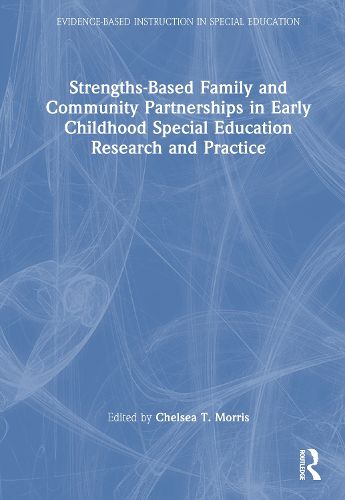Readings Newsletter
Become a Readings Member to make your shopping experience even easier.
Sign in or sign up for free!
You’re not far away from qualifying for FREE standard shipping within Australia
You’ve qualified for FREE standard shipping within Australia
The cart is loading…






This comprehensive edited collection provides early childhood education and early childhood special education providers and researchers with strengths-based strategies for young children in infant, toddler, and preschool settings. It focuses on meaningfully working with families and communities to promote children's social, emotional, behavioral, and mental health well-being.
Moving away from deficit-based views and reframing how educators and researchers can respond to behavior that is perceived as challenging, the book begins with an overview of family-centered practices, the negative impact of exclusionary discipline, and theoretical models for understanding behavior and partnerships. Then the chapters detail how to recognize and build on family and community strengths, reduce suspensions and expulsions, and promote strengths-based teacher training and research collaborations. The book also discusses research, practice, and policy approaches that support children with disabilities, emphasizing the importance of family and community in intervention processes.
Strengths-Based Family and Community Partnerships in Early Childhood Special Education Research and Practice is key reading for early childhood professionals, pre-service teacher educators, and researchers.
$9.00 standard shipping within Australia
FREE standard shipping within Australia for orders over $100.00
Express & International shipping calculated at checkout
This comprehensive edited collection provides early childhood education and early childhood special education providers and researchers with strengths-based strategies for young children in infant, toddler, and preschool settings. It focuses on meaningfully working with families and communities to promote children's social, emotional, behavioral, and mental health well-being.
Moving away from deficit-based views and reframing how educators and researchers can respond to behavior that is perceived as challenging, the book begins with an overview of family-centered practices, the negative impact of exclusionary discipline, and theoretical models for understanding behavior and partnerships. Then the chapters detail how to recognize and build on family and community strengths, reduce suspensions and expulsions, and promote strengths-based teacher training and research collaborations. The book also discusses research, practice, and policy approaches that support children with disabilities, emphasizing the importance of family and community in intervention processes.
Strengths-Based Family and Community Partnerships in Early Childhood Special Education Research and Practice is key reading for early childhood professionals, pre-service teacher educators, and researchers.